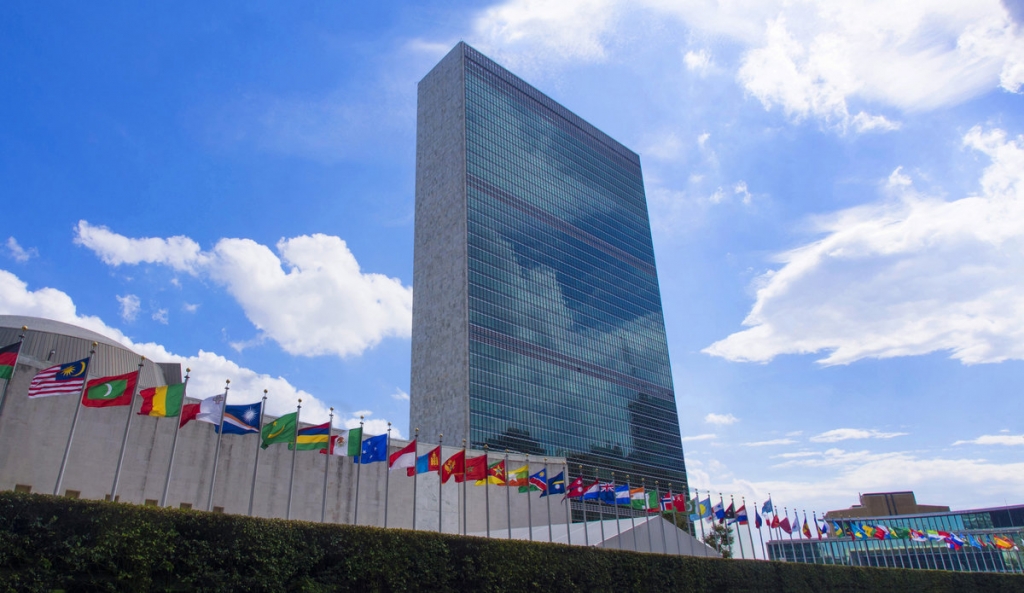Statement by Permanent Representative Vassily Nebenzia at the open VTC of UNSC members on the situation in Colombia
Mr. President,
We thank Head of UN verification Mission in Colombia Carlos Ruiz Massieu for presenting the report on the situation in the country. We are also glad to welcome Foreign Minister of Colombia Claudia Blum at this meeting.
The report adequately reflects the developments in Colombia. It raises great concern, as we clearly see gaps in implementation of the Final Peace Agreement by the government.
This historic document, supported by the General Assembly and the Security Council, in itself is a roadmap for settlement, which means that it must be strictly upheld. However the five recommendations that are presented in the report, address almost every aspect of the peace process. It means that progress at all tracks is insufficient.
This conclusion is confirmed by public discontent in Colombia that swept through the streets in recent months. Thousands of people from the indigenous population and participants of the peace process went on march seeking governmental protection, because it is the government that bears the main responsibility for the security of the population.
As per the data provided by reputable NGO “INDEPAZ”, a systemic intimidation and extermination campaign was launched against the participants of the peace process. The position of civic activists and public leaders is no less gruesome. As a result, part of the population has to take up arms again. It is no coincidence that the report becomes more alarming when it touches upon those returning to the ranks of illegal armed formations.
Other priority tracks also require urgent progress: comprehensive land reform, electoral changes, political and social reintegration of peace process participants, drug problem. 2020 statistical data indicates that drug production volume remains unchanged, implying that in fact there has been zero progress. State agencies that are responsible for the peace process, including the Special Jurisdiction for Peace, still lack financing.
Assessments indicating low efficiency of the Commission for the Follow-up, Promotion and Verification of the Final Agreement (CSIVI) raise particular concern. It is not seldom that the government ignores CSIVI sessions, whereas this body is crucial, as it provides platform for direct dialogue of Colombian sides. UNSC members know from the cases of Syria, Ukraine, and Venezuela that direct dialogue between the sides is an indispensable part of any lasting settlement.
The Final Peace Agreement is losing momentum, against this backdrop, we are concerned by attempts to interpret and substitute provisions of this document by Peace with Legality program. Program implementation at the local level sometimes looks like attempted revision of the Final Agreement.
All of this takes Colombia farther from its strategic goal of lasting national reconciliation. We expect that Bogota will perceive the criticism contained in the report in a constructive manner and start solving peacebuilding tasks energetically.
Now I would like to make a couple more points regarding the report.
Firstly, we would very much like to see there headcount dynamic of illegal armed formations: dissidents from FARDC and members of the NLA. Those figures can be indicative of public trust in the governmental efforts.
Secondly, we are surprised that the report contains separate statistics on LGBT representatives. This group is not considered vulnerable, so inclusion of this kind of specifics in the report has no added value. What the report really lacks is information on social security, and safety of families with children, where the bread-winner fell victim to conflict or attack. In post-conflict situations, single-parent families indeed constitute a vulnerable group.
Thirdly, we believe the report gives insufficient information on resolution of disputes between the government and the NLA. Lasting peace in Colombia is impossible without participation of all key stakeholders.
Russia is ready to set forth its support for the Colombian peace process in order to ensure its sustainable and irreversible character.
Mr. President,
In conclusion, let me touch upon an important regional aspect, or rather – a global problem.
A short time ago Russia was intending to provide humanitarian financial assistance to the countries affected by storms Eta and Iota. The money was meant to be spent on water filters to curb the spread of disease. However the US Citibank that was a mediator for the transaction, refused to transfer funds to the Central American Parliament.
After two weeks of inquiries into the source of the funds (which was the Russian Foreign Ministry), the Citibank returned the money. So far we have received no clarification of the reasons for that either from the bank, or from the US Department of State. This inflicted harm on ordinary people who were just waiting for urgent humanitarian aid.
This is one of many examples of destructive impact of illegal restrictive measures on humanitarian cooperation.
I am saying this for our colleagues who justify their malevolent policy by claiming that their targeted sanctions never affect humanitarian issues. Pandemic and natural disasters put things in a perspective and prove that restrictive measures have become a major challenge to sustainable recovery of states. This issue is worth closest attention and response of the international community.
Thank you.
